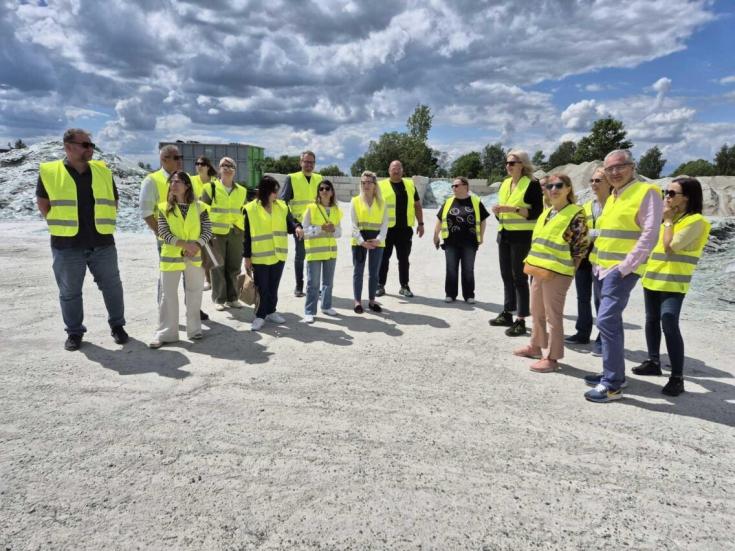Exploring Lithuania's Advanced Waste Management Practices
As part of the STOPWASTE Project's study visit, June 13th marked an illuminating exploration of Lithuania's leadership in waste management. Visits to the Alytus Region Waste Management Centre and Ekobazė Waste Recycling Centre provided profound insights into the country's holistic approach to waste reduction and recycling.
Alytus Region Waste Management Centre: The delegation's first stop was the Alytus Region Waste Management Centre, renowned for its comprehensive municipal waste strategies:
- Mechanical Sorting and Biological Treatment: Essential processes separating recyclables and treating organic waste to minimize environmental impact.
- Green Waste Composting: Transformation of green waste into compost to promote organic recycling and diminish landfill dependency.
- Food Waste Treatment: Specialized methods converting food waste into valuable resources such as compost and energy.
Ekobazė Waste Recycling Centre: Next, the delegation visited Ekobazė Waste Recycling Centre, focusing on its advanced recycling technologies:
- Glass Recycling: Implementation of cutting-edge equipment boosting glass recycling capacity, contributing significantly to environmental sustainability.
- Tyre Recycling: Utilization of an innovative granulation line to process used tyres into rubber granules for various applications, aligning with circular economy principles.
Insights and Implications: The visits underscored Lithuania's commitment to sustainable waste management practices, emphasizing:
- Community Engagement: Integration of educational programs and interactive learning at the TikoTiks Centre to promote environmental awareness and responsible consumption.
- International Collaboration: Partnerships driving innovation and sharing best practices across Europe for enhanced waste reduction strategies.
Conclusion: The study visit to Alytus Waste Management Center and Ekobazė highlighted Lithuania's pioneering efforts in waste management, offering valuable lessons and inspiration for global sustainability initiatives. The knowledge gained will empower stakeholders to implement similar strategies in their respective regions, fostering a collective commitment to environmental stewardship and circular economy principles.
This exploration exemplifies Lithuania's role as a frontrunner in sustainable waste management, paving the way for a greener and more resilient future.

